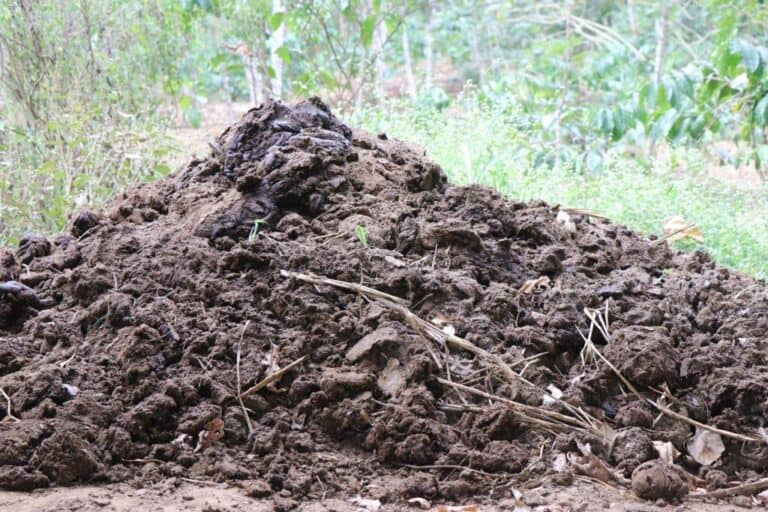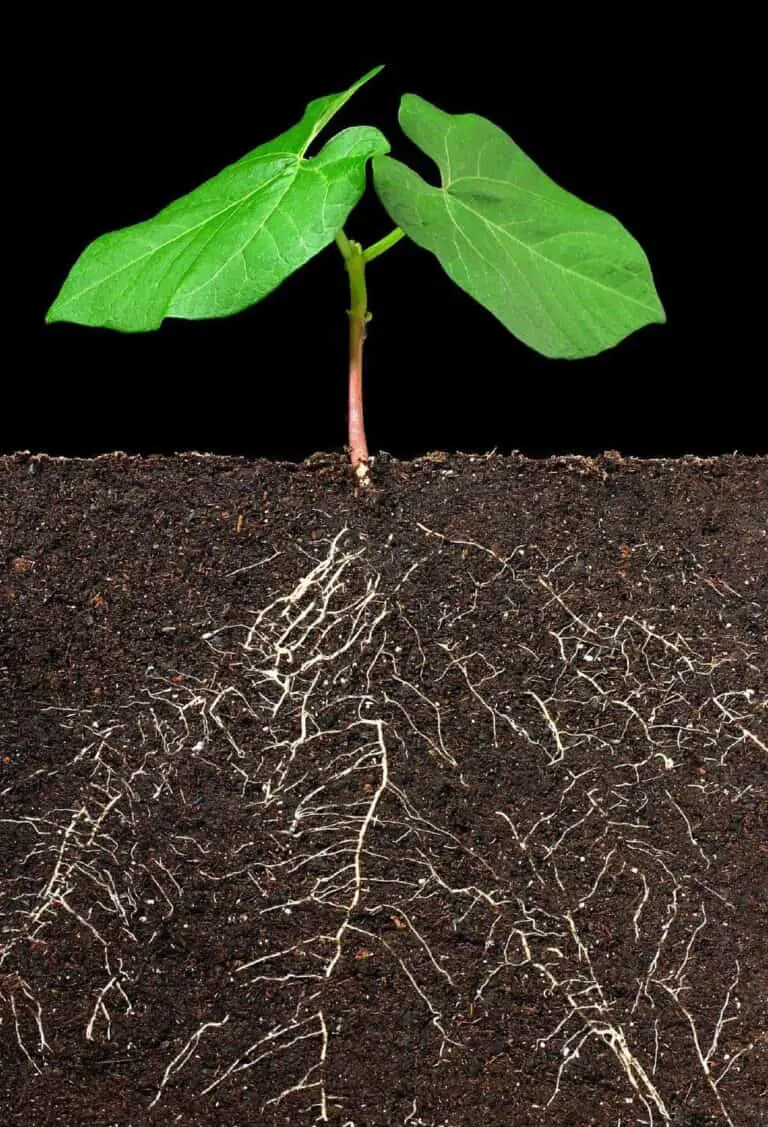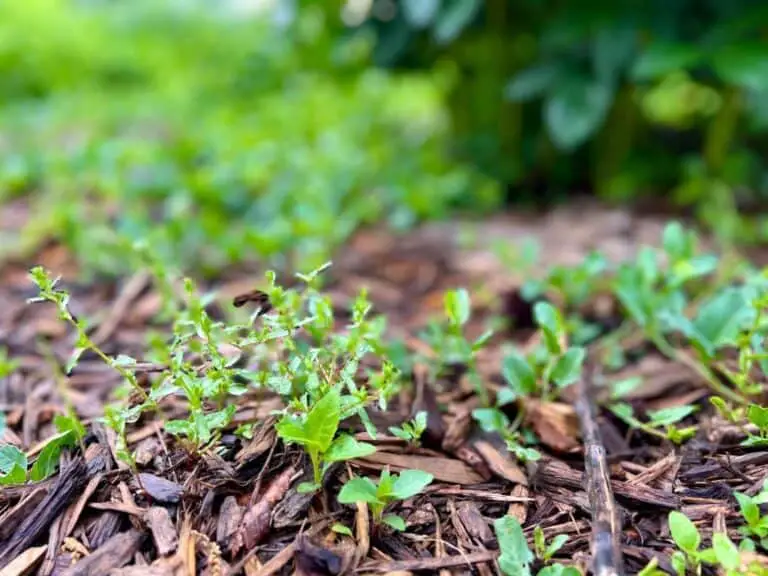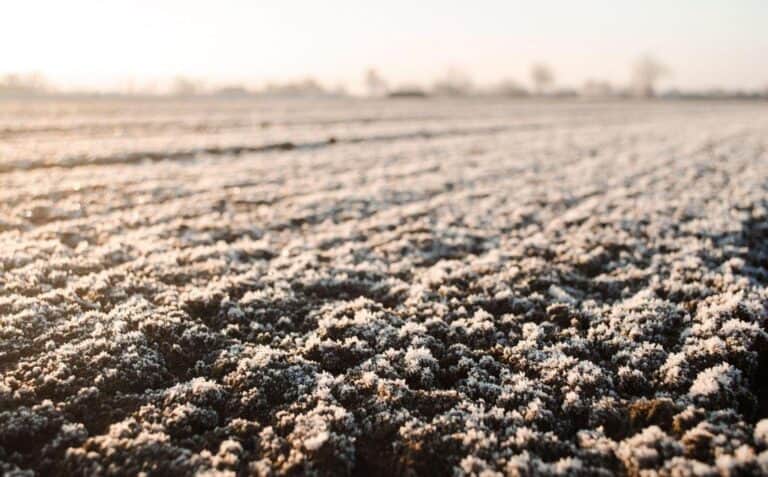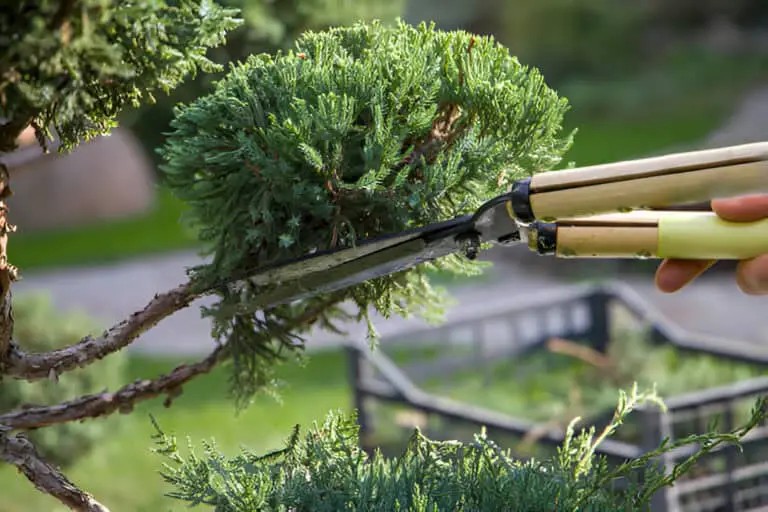Baking Soda in Soil: Does it Neutralize or Lower pH in Soil?
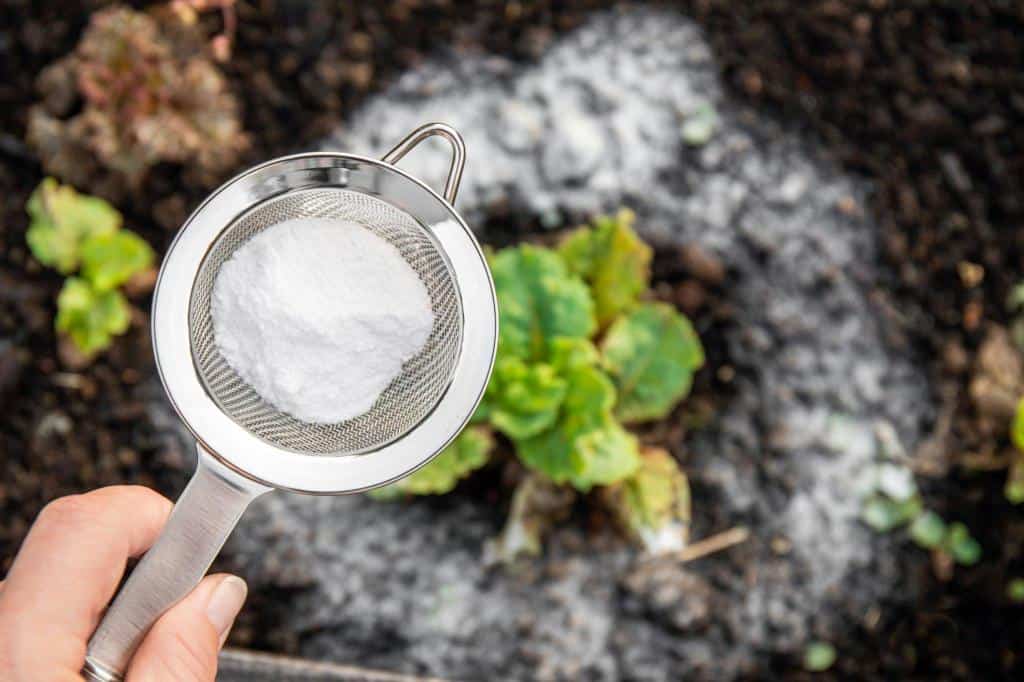
In the captivating world of gardening, where every leaf unfurls a story and each bud holds a promise, the mysteries of soil chemistry beckon. Picture this: a pinch of baking soda—that humble kitchen companion—venturing into the earthy realm, mingling with soil, and possibly altering its pH destiny. But is it a wizard that neutralizes acidic sorcery or a subtle alchemist that lowers the soil’s pH octave?
Baking soda is alkaline, and adding it to soil will reduce the acidity of soil, making it more alkaline. This makes it a useful method for increasing the pH of soil that has become too acidic for plant growth
Dive with us into this horticultural expedition as we uncover the intricate relationship between baking soda and soil pH. Buckle up, for we’re about to unearth the answers that lie beneath the roots and explore whether this everyday ingredient is a pH-shifting magician or a companion on the garden path. Let’s decipher the whispers of the soil and the chemistry of baking soda, creating a symphony that might just be the key to your garden’s harmonious growth.
Introduction to Baking Soda and Soil pH
Baking soda, scientifically known as sodium bicarbonate (NaHCO3), is a common household item with versatile uses. Its chemical composition includes sodium, hydrogen, carbon, and oxygen atoms, which give it the ability to interact with various substances. But how does this relate to soil and plant growth?
Soil pH, the measure of acidity or alkalinity in soil, plays a pivotal role in plant health. This is because it affects nutrient availability for plants. If the soil pH is not within the optimal range, some essential nutrients become less accessible to plants, affecting their growth and development. Hence, maintaining the right soil pH is crucial for garden success.
The Role of pH in Plant Health
Imagine the pH scale as a spectrum of acidity and alkalinity, ranging from 0 to 14. A pH of 7 is considered neutral, below 7 is acidic, and above 7 is alkaline. Plants have varying preferences for soil pH, and extreme levels can be detrimental to their health. For instance, highly acidic soils can lead to aluminum and manganese toxicity, while highly alkaline soils can hinder the availability of iron, zinc, and phosphorus.
Moreover, pH has a profound impact on nutrient uptake. Different nutrients are most soluble within specific pH ranges. If the soil pH is not aligned with these ranges, certain nutrients remain locked in the soil, inaccessible to plants. This illustrates how pH acts as a gatekeeper, regulating nutrient access for plants.
Understanding Soil pH Modification
Achieving the optimal soil pH is a multifaceted process encompassing several methods, each accompanied by distinct advantages and considerations. Before embarking on the journey of pH modification, a crucial preliminary step is to assess your soil’s existing pH. This seemingly simple action yields valuable insights that serve as the foundation for informed decision-making in your gardening endeavors.
Numerous factors that each weave a distinct thread in the tapestry of soil composition have an impact on soil pH alteration. The parent material from which the soil originates lays the groundwork for its inherent pH tendencies. The presence of organic matter, coupled with the patterns of rainfall and drainage, intricately shapes the soil’s pH profile. Moreover, the types of plants that have previously thrived in the area play a significant role in molding the soil’s pH over time.
By delving into the intricacies of these contributing factors, gardeners gain a deeper understanding of the potential impact that pH modification can have on their soil and plant life. Armed with this knowledge, they can confidently navigate the realm of soil pH adjustment, striving for an environment that optimally supports their green aspirations.
| Factors Influencing Soil pH Modification: |
| Soil’s parent material |
| Organic matter content |
| Rainfall patterns and drainage |
| Types of plants previ |
Does Baking Soda Neutralize or Lower the pH in Soil?
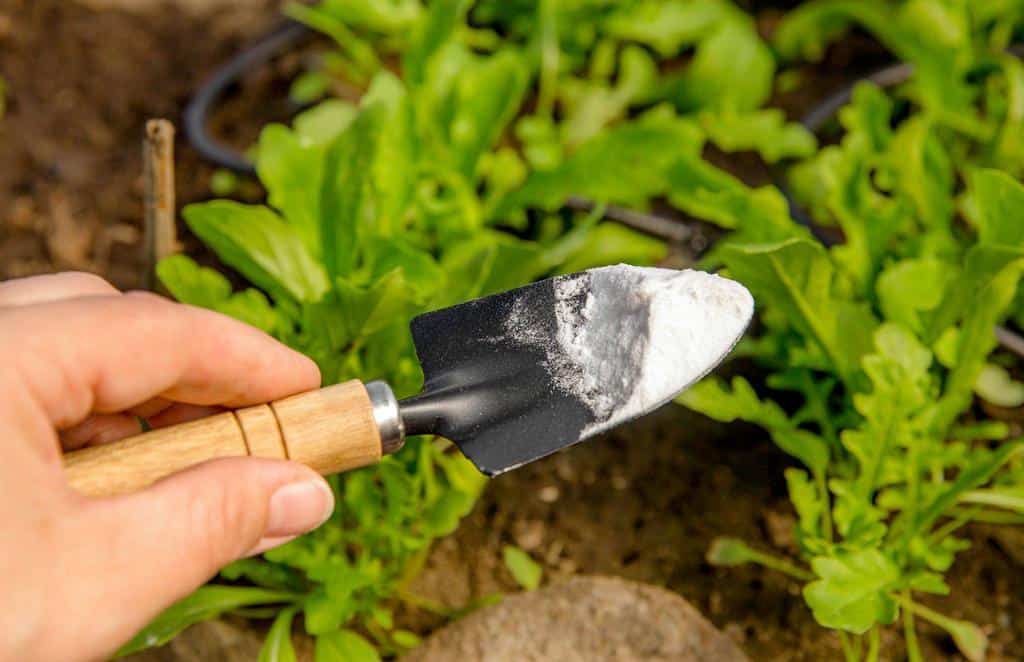
When baking soda interacts with soil, a chemical reaction occurs. It can release carbon dioxide gas, water, and sodium ions into the soil. This begs the question: Does baking soda truly neutralize or lower soil pH?
While baking soda has the potential to neutralize acidic substances, its impact on soil pH might not be as drastic as other amendments. The reaction it triggers can lead to a slight increase in pH, making it more alkaline. However, this effect is generally temporary, as other factors in the soil can counteract the pH change.
More: How to Sterilize Soil in Raised Beds for Healthy Plant Growth
Baking Soda’s Balancing Act
Imagine baking soda as the calm mediator in the bustling city of soil pH. It doesn’t force the soil into acidity or alkalinity; rather, it seeks equilibrium. When soils are either too acidic or too alkaline, baking soda lends its hand in bringing the pH closer to neutrality. This is particularly helpful in regions where soil pH tends to fluctuate dramatically.
| Soil pH Status | Baking Soda’s Role |
| Too Acidic | Acts as a mild pH buffer, inching towards neutral pH. |
| Too Alkaline | Counterbalances excess alkalinity, moving pH closer to neutral. |
Baking Soda Application in Gardening
Baking soda finds its way into gardening practices for various reasons. One common use of baking soda is as a fungicide to help control fungal diseases on plants. It’s also employed to manage pest issues, deter weeds, and even enhance the effectiveness of certain pesticides.
However, it’s essential to weigh the benefits against the potential risks. Excessive use of baking soda can disrupt the natural ecosystem of the soil, impacting microorganisms and nutrient cycling. Additionally, some plants may not thrive in more alkaline conditions, making the application of baking soda less suitable.
Recommended application rates and methods vary depending on the purpose. For instance, using baking soda spray on foliage may require a different concentration than applying it to the soil. Always follow the recommended guidelines and monitor your plants’ responses.
Effects on Plant Nutrient Availability
As we’ve discussed, pH plays a pivotal role in nutrient availability for plants. Different nutrients have their own pH preferences for optimal solubility. When the soil pH deviates from these preferences, certain nutrients become less accessible to plants, leading to deficiencies and impaired growth.
In the context of baking soda application, it’s crucial to consider how altered pH might affect nutrient availability. While baking soda can temporarily raise pH levels, its influence on nutrient solubility is not as significant as that of other soil amendments. Therefore, if your main goal is to improve nutrient availability, other pH-modifying substances might be more suitable.
Considerations for Different Plant Types
Plants exhibit a wide range of preferences when it comes to soil pH. Some plants thrive in slightly acidic conditions, while others prefer a more alkaline environment. Therefore, before reaching for the baking soda, it’s essential to consider the specific pH requirements of the plants you’re cultivating.
For example, blueberries prefer acidic soils with a pH range of 4.5 to 5.5, making them unsuitable candidates for baking soda application. On the other hand, vegetables like lettuce and beans often tolerate a broader pH range and might be less affected by baking soda’s temporary pH adjustment.
Alternatives to Baking Soda for pH Modification
While baking soda can serve various purposes in gardening, it’s not the only option for pH modification. Lime and sulfur are two common alternatives used to adjust soil pH.
Lime is commonly used to raise soil pH in acidic soils. It reacts with the soil to release calcium and magnesium ions, effectively neutralizing acidity. On the other hand, sulfur is used to lower pH in alkaline soils. It undergoes a chemical reaction that generates sulfuric acid, which reduces alkalinity.
When considering alternatives, it’s essential to assess the specific needs of your plants and the characteristics of your soil. Consulting with local gardening experts or conducting a soil test can provide valuable insights into the most suitable pH modification method for your garden.
Best Practices and Precautions
As with any gardening practice, using baking soda for pH modification requires adherence to best practices and precautions. Here are a few key tips to keep in mind:
- Start Small: If you decide to use baking soda, start with a small application and monitor the results before making significant changes.
- Soil Testing: Regularly test your soil pH to ensure it remains within the optimal range for your plants.
- Consider the Plants: Always consider the pH preferences of the plants you’re growing before applying baking soda.
- Balanced Approach: Utilize a combination of pH-modifying methods to achieve the desired pH without relying solely on baking soda.
- Observation is Key: Pay close attention to your plants’ responses after any pH adjustment to catch any potential issues early.
In conclusion, while baking soda can have a temporary impact on soil pH, its ability to significantly alter pH levels for an extended period is limited. When used thoughtfully and in combination with other practices, baking soda can contribute positively to your gardening endeavors. Remember, a successful garden is a harmonious balance of soil, plants, and care.
FAQs Baking Soda in Soil
Can baking soda drastically alter soil pH?
While baking soda can influence soil pH, its effects might not be as drastic as other amendments like lime or sulfur. It’s important to monitor pH closely.
Is baking soda safe for all types of plants?
Not all plants have the same pH preferences. Some may thrive in slightly acidic soil, while others prefer alkaline conditions. Careful consideration is needed.
Can excessive baking soda harm soil and plants?
Yes, excessive use of baking soda can disrupt the soil’s natural ecosystem and affect nutrient availability. Proper application rates are crucial.
What are the risks of using baking soda in the soil?
Overuse can lead to a pH imbalance, affecting nutrient availability. It’s vital to understand your soil’s needs before application.
Can baking soda harm plants if not used correctly?
Yes, excessive use can harm plants due to pH fluctuations. Precise application is key to preventing unintended damage.
Are there natural alternatives to baking soda for pH adjustment?
Yes, alternatives like agricultural lime (raise pH) and sulfur (lower pH) offer more controlled and effective pH adjustments, tailored to plant needs.

